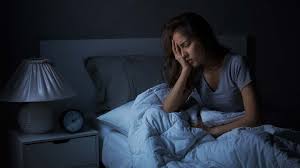During the quiet and peaceful hours of the night, when everything is covered in darkness and silence, a lot of people find themselves fighting a losing struggle: the battle against insomnia. Millions of people worldwide suffer with insomnia, which is the ongoing inability to fall or stay asleep, depriving them of the rejuvenating sleep they so sorely need. But there is hope in the midst of the never-ending battle to get to sleep. People may reclaim their evenings and embrace the sweet embrace of sleep by being aware of the root causes of insomnia and putting into practice practical solutions to conquer it. This article discusses a number of methods and strategies for overcoming insomnia and getting a good night’s sleep.
Comprehending Sleeplessness: A Difficult Conundrum
Being awake in bed is not the only symptom of insomnia; it is a complex disorder with biological, psychological, and lifestyle components at its core. In order to properly treat insomnia, it is imperative to comprehend the multiple factors that contribute to its onset and duration.
Biochemical Elements
An important function for biological components is played by them in insomnia, since they affect circadian rhythms, hormone balance, neurotransmitter activity, and more. Neurotransmitter imbalances, including those involving norepinephrine, dopamine, and serotonin, can change brain activity and interfere with sleep cycles. Sleep problems can be caused by hormonal imbalances, such as high cortisol levels or low melatonin secretion, which can throw off the body’s internal clock. Insomnia symptoms can also be made worse by circadian rhythm disturbances such erratic sleep patterns or nighttime exposure to artificial light.
Aspects Psychological
The mind plays a significant role in insomnia, with psychological variables including stress, worry, and depression frequently exacerbating sleep problems. An anxious mind’s constant chatter can make it hard to wind down and relax, while depressing or dismal thoughts might interfere with sleep. Maladaptive sleep-related beliefs and actions, such as an over-reliance on sleep aids or excessive concern about getting enough sleep, can also exacerbate insomnia and make it more chronic.
Lifestyle Elements
The onset and persistence of insomnia are mostly influenced by lifestyle variables; routines including inconsistent sleep schedules, excessive screen time, and poor sleep hygiene all contribute to sleep problems. The body’s ability to fall asleep and stay asleep can be interfered with by taking stimulants like caffeine or nicotine close to bedtime, sleeping in an unpleasant environment, and indulging in stimulating activities before bed.
Methods for Overcoming Sleeplessness: An All-Inclusive Approach
An interdisciplinary strategy that addresses biological, psychological, and lifestyle aspects is necessary to treat insomnia. Through the use of a customized set of tactics, people can proactively work towards attaining a good night’s sleep. The following are some practical methods for getting rid of insomnia:
Create a Regular Sleep Schedule
Maintaining a regular sleep schedule and promoting healthy sleep-wake cycles can be achieved by going to bed and waking up at the same time every day. Try to get seven or nine hours of sleep per night and refrain from taking too many naps during the day.
Establish a Calm Nighttime Schedule
Before going to bed, partake in soothing activities like reading, having a warm bath, or practicing relaxation methods like meditation or deep breathing. Steer clear of mentally taxing pursuits like intense exercise or screen time in the hours before bed.
Make Your Sleep Environment Perfect
Establish a cozy sleeping space that encourages unwinding and restful slumber. Invest on a cozy mattress and pillows, and keep your bedroom quiet, dark, and cool. To reduce disturbances, think about utilizing earplugs, white noise generators, or blackout curtains.
Apply Stress Reduction Methods
Look for healthy coping mechanisms to handle stress and anxiety, such journaling, yoga, or mindfulness meditation. Frequent physical activity can also aid in lowering stress and improving sleep.
Reduce Your Use of Stimulants and Screen Time
Alcohol, nicotine, and caffeine should not be consumed right before bed because they can disrupt your sleep. To help your body know when it’s time to wind down, set up a calming bedtime routine and minimize your exposure to screens and blue light in the hours before bed.
Get Expert Assistance
If self-help techniques don’t relieve your sleeplessness, you might want to contact a medical expert. A medical professional or sleep specialist can perform a comprehensive insomnia assessment and offer individualized treatment plans that may involve medication, cognitive-behavioral therapy, or other approaches.
Final Thoughts: Accepting the Path to Better Sleep
Even though insomnia could feel like an insurmountable barrier, there is still hope for people who are having trouble falling asleep. People may reclaim their evenings and embrace the sweet embrace of sleep by being aware of the root causes of insomnia and putting into practice practical solutions to conquer it. Improved sleep can be achieved in a variety of ways, including professional interventions, stress management strategies, and lifestyle changes. Individuals can experience a transformative journey towards increased well-being and vitality by embracing the road towards improved sleep with patience, tenacity, and compassion.

